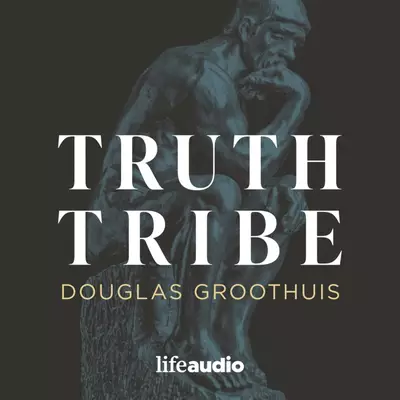Freud’s Last Session: His Debate with C.S. Lewis & What Each Believed about Religion and Evil
Few people have shaped the twentieth century’s understanding of Christianity more than its opponent, Sigmund Freud (1856-1939), and its advocate C. S. Lewis (1898-1964). Lewis, an adult convert from atheism, made his career as an Oxford don, but became well-known as a Christian apologist. Freud developed a revolutionary psychological theory (psychoanalysis), which established his career, started a movement, and ensured his titanic influence on Western thought. But he employed that theory against religion in general and Christianity in particular, dismissing them as neurotic. In 2003, Armand Nicholi published The Question of God. C.S. Lewis and Sigmund Freud Debate God, Love, Sex, and the Meaning of Life. Alas, the film does not reach its level of fairness or rigor.
Freud’s case against Lewis hinges on two claims: (1) that religion is an illusion) and (2) the problem of evil. Religion is merely wish-fulfillment that represents one’s inability to face the evils of life without some supernatural consolation.
First, the idea that Christianity is an “illusion” because it merely projects an idealistic idea of a father onto a godless universe has been refuted repeatedly. Simply because we desire X strongly is no evidence that X does not exist. Rather, it might be evidence that X does exist. In the film, Lewis is not given adequate room to develop the idea.
C. S. Lewis developed his argument from yearning in his famous essay “The Weight of Glory.” We all experience a deep sense of yearning or longing for something that the present natural world cannot fulfill—something transcendently glorious. In his autobiography he recounts several experiences of this throughout his life, in which he sensed something wonderful beyond his grasp. These were fleeting but invaluable moments, which he called the experience of “joy.” They were not encounters with God and did not directly result in his conversion. Instead, they were indicators that the everyday world was not a self-enclosed system; a light from beyond would sometimes peek through the “shadow lands.” This thirst, which is intensified by small tastes of transcendence, indicates the possibility of fulfillment.[i]
Creatures are not born with desires unless satisfaction for those desires exists. A baby feels hunger; well, there is such a thing as food. A duckling wants to swim; well, there is such a thing as water. Men feel sexual desire; well, there is such a thing as sex. If I find in myself a desire which no experience in this world can satisfy, the most probable explanation is that I was made for another world. If none of my early pleasures satisfy it, that does not prove that the universe is a fraud. Probably earthly desires were never meant to satisfy it, but only to arouse it, to suggest the real thing.[ii]
Second, Freud’s attack on Christianity through the problem of evil has been met in various ways by Christian philosophers and apologists over the ages. Lewis’s approach in the film was muted, but a careful reading of The Problem of Pain does much to address the matter rationally, although I part ways with Lewis understanding of “free will,” given that I am a compatibilist on human agency—something he did not even consider as a possibility.[iii] Nevertheless, a basic argument for Christianity in light of the problem of evil should look something like this. One can construct such an argument by using material only from Lewis, but his can be supplemented by many other sources.[iv]
- There is good evidence for the existence of a personal, moral, and infinite God from natural theology—a God who is (a) all-good and (b) all-powerful.
- God’s goodness, specifically, is known through the moral argument for God (a version of which Lewis gave in Mere Christianity) and through God’s saving actions in Jesus Christ (the historical dimension).
- There is objective evil in the world.
- Therefore (given 1 and 2), for any evil God allows, there is a sufficient reason for that evil to occur—whether we know what that reason is or not.[v]
Freud’s projection objection to theism fails, not only in its intrinsic logic, but because of the objective case for God’s existence based on evidence outside of human desires.
[i] This paragraph is taken from Groothuis, Douglas. Christian Apologetics: A Comprehensive Case for Biblical Faith (pp. 367-368). InterVarsity Press. Kindle Edition.
[ii] C. S. Lewis, Mere Christianity (1944; reprint, New York: Simon & Schuster, 1996), 121. I develop this idea, with help from St. Augustine and Blaise Pascal, in Groothuis, Christian Apologetics, 366-368.
[iii] See Groothuis, Christian Apologetics, “The Problem

Website: https://www.DouglasGroothuis.com
